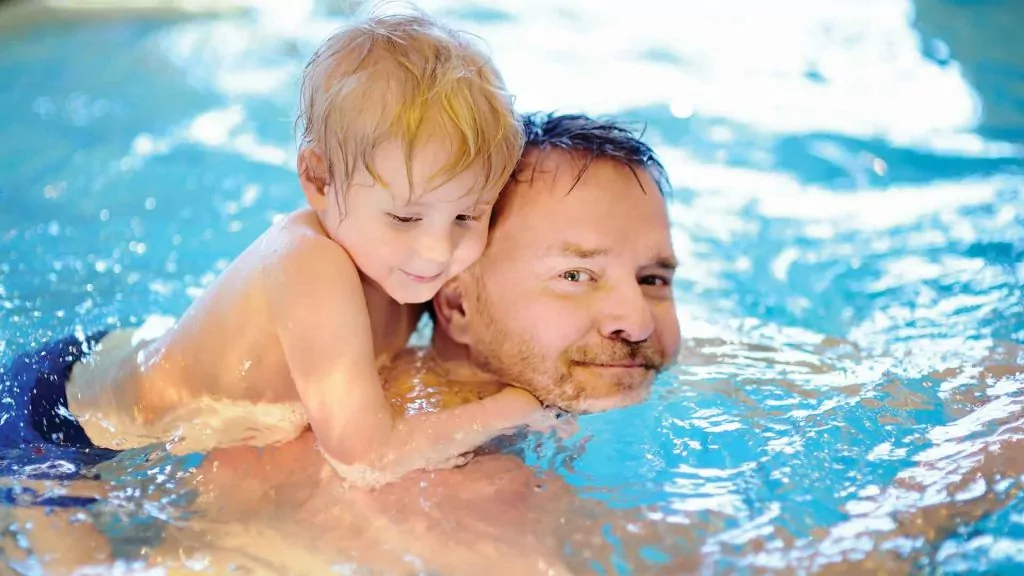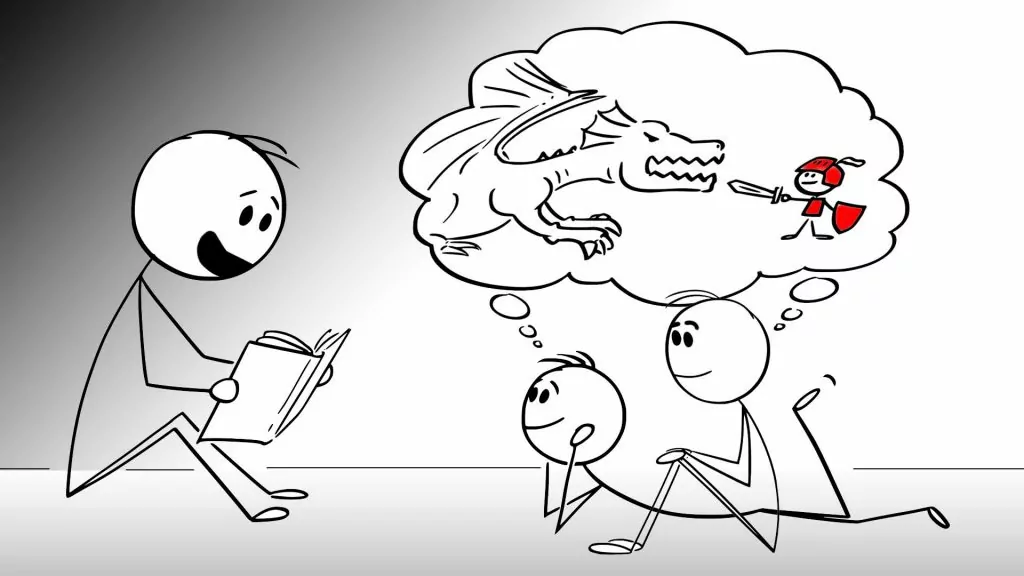
Parenting
6 Duties of Parents
"Train up a child in the way he should go: and when he is old, he will not depart from it." - Prov. 22:6
*****
I suppose that most professing Christians are acquainted with the verse at the top of this page. The sound of it is probably familiar to your ears, like an old tune. You have heard it, or read it, maybe even talked about it, or quoted it, many a time.
But for all our familiarity with it, how lightly we regard this text! The wisdom it contains appears almost unknown, the duty it puts on us, rarely practiced. Reader, am I not speaking the truth? We live in a day when there is a mighty zeal for education. We hear of new schools, and new teaching approaches, and new books for the young, of every sort and description. And still for all this, the vast majority of children are most certainly not being trained in the way they should go, for when they grow up, they do not walk with God.
Why is this happening? The simple truth of is, the Lord's commandment in our text is not being obeyed; and therefore the Lord's promise in our text is not being fulfilled.
This should have us searching our hearts. Every parent should be asking themselves the question: "Am I doing what I can?”
This is a subject in which all of us are in great danger of falling short of our duty. We are able to spot the faults of our neighbors more clearly than our own. A father will often see specks in other men's families, and overlook beams in his own. He will be as keen-eyed as an eagle in detecting mistakes in his brother’s house, and yet be blind as a bat to the fatal errors that are happening each day in his on home. Here more than anywhere else, we need to suspect our own judgment.
In fact, there is hardly any subject about which people are so defensive as they are about their own children. I have been perfectly astonished at the slowness of sensible Christian parents to allow that their own children deserve blame. There are more than a few people who’d I’d much rather confront about their own sins, than tell them their child had done anything wrong.
So let me place before you a few hints about training your children rightly.
1. Train them in the way they should go, not the way they would like to go
First, then, if you want to train your children rightly, train them in the way they should go, and not in the way that they would like to go.
Remember, children are born with a decided bias towards evil, and therefore if you let them choose for themselves, they are certain to choose wrong.
A mother can’t tell whether her infant child will grow up to be tall or short, weak or strong, foolish or wise, but one things the mother can be sure of is that he will have a corrupt and sinful heart. It is natural to us to do wrong. "Foolishness," says Solomon, "is bound in the heart of a child" (Prov. 22:15). "A child left to himself brings his mother to shame" (Prov. 29:15). Our hearts are like the earth on which we tread; let it alone, and it is sure to bear weeds.
If, then, you want to deal wisely with your child, you must not leave him to the guidance of his own will. Think for him, judge for him, act for him, just as you would for one weak and blind; and for pity's sake, don’t give him up to his own wayward tastes and inclinations. He doesn’t know yet what is good for his mind and soul, any more than what is good for his body. You do not let him decide what he shall eat, and what he shall drink, and how he shall be clothed. Be consistent, and deal with his mind in like manner. Train him in the way that is scriptural and right, and not in the way that he fancies.
If you aren’t determined to follow this first principle of Christian training, it is useless for you to read any further. Self-will is almost the first thing that appears in a child's mind; and it must be your first step to resist it.
2. Train them up with love and patience
You must train up your child with tenderness, love, and patience. I don’t mean, “spoil him.” I do mean that you should let him know that you love him. Love should be the silver thread that runs through all your conduct. Kindness, gentleness, long-suffering, forbearance, patience, sympathy, a willingness to enter into childish troubles, a readiness to take part in childish joys, — these are the cords by which a child may be led most easily, — these are the clues you must follow if you intend to find the way to his heart.
Few are to be found, even among adults, who are not more easy to draw than to drive. It is common to all of us that when pushed, we resist; we stiffen our backs and stiffen our necks at the very idea of being forced to obey.
Now children's minds are cast in much the same mold as our own. Sternness and severity chills them. It shuts up their hearts, and you will weary yourself to find the door.
But show them you have affection for them – that you are concerned with their happiness, and want to do them good – and that if you punish them, it is intended for their good, that, like the pelican, you would give your heart's blood to nourish their souls; let them see this, I say, and they will soon be all your own. But they must be wooed with kindness, if their attention is ever to be won.
And surely reason itself might teach us this lesson. Children are weak and tender creatures, and, as such, they need patient and considerate treatment. They are like young plants, and need gentle watering – it needs to be done often, but only a little at a time.
We must not expect all things at once. We must remember what children are, and teach them as they are able to bear. Their minds are like a lump of metal – not to be forged and made useful at once, but only by a succession of little blows. Their capacity to understand is like a narrow-necked bottle: we must pour in the wine of knowledge gradually, or much of it will be spilled and lost. There is a need for patience in training a child, and without it nothing can be done.
Nothing can compensate for an absence of tenderness and love. A minister may speak the truth as about Jesus, clearly and forcefully, but if he doesn’t speak it in love, few souls will be won. In the same way, you must set before your children their duty, – you can command, threaten, punish and reason with them – but they don’t feel your affection for them, your labor will be all in vain.
Love is one of the biggest secrets to successful training. Anger and harshness may frighten, but they will not persuade the child that you are right; and if he sees you regularly grumpy and angry, you’ll soon stop having his respect. A father who speaks to his son as Saul did to Jonathan (1 Sam. 20:30), need not expect to retain his influence over that son's mind.
So try hard to keep up a hold on your child's affections. It is a dangerous thing to make your children afraid of you. Anything is almost better than a distant reserved relationship between you and your child; such distance will come with fear. Fear puts an end to openness – fear leads to concealment – and leads to many a lie. There is a vital truth in the Apostle's words to the Colossians: "Fathers, do not provoke your children, lest they become discouraged." (Col. 3:21). This is advice that should not be overlooked!
3. Understand that much depends on you
Train your children always remembering that much depends upon you.
Consider how very strong grace is. God’s grace can transform the heart of an old sinner – it can overturn the very strongholds of Satan, casting down mountains, filling up valleys, making crooked things straight. It can recreate the whole man.
Truly nothing is impossible to grace.
Our fallen human nature is also very strong. We can see how our nature struggles against the things of the kingdom of God – how it fights against every attempt to be more holy, right up until the last hour of life. Our fallen nature indeed is strong.
But after nature and grace, undoubtedly, there is nothing more powerful than the education we as parents give our children. Early habits (if I may so speak) are everything with us, under God. We are made what we are by training. Our character takes the form of whatever mold was formed in those first few years.
We depend, then, on those who bring us up. We get from them a color, a taste, a bias which cling to us more or less all our lives. We catch the language of our fathers and mothers, and learn to imitate them, and we catch something of their manners, ways, and thinking at the same time. Time only will show, I suspect, how much we all owe to our earliest training, and how many aspects of our personality and our character can be traced back to seeds sown in the days of our very infancy by those who were living with us.
We can see God’s wisdom and mercy and in this arrangement. He gives our children minds that will receive impressions like moist clay. He gives them a disposition at the starting-point of life to believe what we tell them, and to take for granted what we advise them, and to trust our word rather than a stranger's. He gives you, in short, a golden opportunity of doing them good. So see to it that the opportunity isn’t wasted. If we let it slip away, it is gone forever.
4. Think of eternity
Train your child with this thought always in mind: that the soul of your child is the first thing to be considered.
No doubt, these little ones are precious in your eyes; but if you love them, then think often of their souls. No part of them should be so dear to you as that part which will never die. The world, with all its glory, shall pass away; the hills shall melt; the heavens shall be wrapped together as a scroll; the sun shall cease to shine. But the spirit which dwells in those little creatures, whom you love so well, shall outlive them all, and whether they live on in happiness or in misery will (humanly speaking) depend on you.
This is the thought that should be uppermost in your mind in all you do for your children. In every plan, and arrangement that concerns them, don’t forget to ask that all important question, "How will this affect their souls?"
Soul love is the soul of all love. To pet and pamper and indulge your child, as if this world was all he had to look forward to, and as if this life is his only opportunity for happiness, that is is not true love, but cruelty. It is treating him like some beast of the earth, which has but one world to look to, and nothing after death. It is hiding from him that grand truth, which he ought to have been taught from his very infancy – that the chief end of his life is the reconciliation of his soul to God.
A Christian mustn’t be a slave to trends if he is going to train his child for heaven. He should not teach them a certain way just because that’s how everyone else is doing it, or allow them to read questionable books just because everybody else reads them; or let them form habits of a doubtful worth merely because these are the habits of the day. He must train with an eye to his children's souls. He must not be ashamed to hear his training called singular and strange.
What if it is? Our time here is short, and worldly trends will pass away. The parent who has trained his children for heaven, rather than for earth – for God, rather than for man – is the parent who will be called wise in the end.
5. Teach your children the Bible
Train you child so that they know the Bible. You cannot make your children love the Bible, true – only the Holy Spirit Ghost can give us a heart that delights in the
Word – but you can ensure your children are well acquainted with the Bible. And they cannot be acquainted with that blessed book too soon, or too well.
A thorough knowledge of the Bible is the foundation of all clear understandings of religion. Someone well acquainted with the Word will generally not be carried away by every wind of new doctrine. Any parental training that doesn’t make a knowledge of Scripture the first thing is unsafe and unsound training.
Errors abound on just this point, so it is important we have a proper understanding of the Bible’s place. There are some who honor a catechism more than the Bible, or fill the minds of their children with miserable little storybooks, instead of the Scripture of truth. But if you love your children, let the simple Bible be first, and let all other books take second place. So don’t worry as much about them being well versed in the catechism, as their being well-versed in Scripture. This is training – believe me! – that God will honor.
See to it that your children read the Bible reverently. Train them to look on it, not as the words of men, but as it truly is: the Word of God written by the Holy Ghost Himself. And see to it that they read it regularly. Train them to view it as their soul's daily food – as something essential to their soul's daily health.
Again, I understand you can’t make them love Bible reading – you can’t make this anything more than a habit. But there is no telling the amount of sin that this mere habit may indirectly restrain.
See that they read it all. And don’t shy away from presenting doctrine to them. You shouldn’t think that the foundational doctrines of Christianity are too difficult for children to understand. Children understand far more of the Bible than we are might suppose.
So tell them about sin, its guilt, its consequences, its power, its vileness: you will find they can understand this, at least in part.
Tell them about the Lord Jesus Christ, and His work for our salvation – the atonement, the cross, the blood, the sacrifice, the intercession: again, you will discover that this is not beyond them.
Tell them about the work of the Holy Spirit in man's heart, how He changes, and renews, and sanctifies, and purifies: you will soon see they can follow along with some of what you are explaining.
In short, I suspect we have no idea how much a little child can take in of the length and breadth of the glorious gospel. They see far more of these things than we suppose.
Fill their minds with Scripture. Let the Word dwell in them richly. Give them the Bible, the whole Bible, even while they are young.
6. Train them to prayer regularly
Prayer is the very life-breath of true religion. It is one of the first evidences that a man is born again. When the Lord sent Ananias to Saul, He said: "Behold, he is praying" (Acts 9:11). Saul had begun to pray, and that was proof enough.
Prayer is a key to spiritual growth. When there is lots of private communion with God, your soul will grow like the grass after rain; when there is little, all will be at a standstill – you will barely keep your soul alive. Show me a growing Christian, a strong Christian, a flourishing Christian, and I will show you one that speaks regularly with his Lord. He asks much, and he has much. He tells Jesus everything, and so he always knows how to act.
Prayer is the mightiest engine God has placed in our hands. It is the best weapon to use in every difficulty, and the surest remedy in every trouble. It is the cry He has promised to always be listening for, even as a loving mother listens for the voice of her child.
Prayer is the simplest means that man can use to come to God. It is within the reach of all of us – the sick, the aged, the infirm, the paralytic, the blind, the poor, the unlearned – everyone can pray. You don’t have to be academic or an intellectual to pray. So long as you have a tongue to tell God about the state of your soul, you can and you ought to pray. Those words, " You do not have because you do not ask God" (James 4:2), will condemn many on the Day of Judgment.
Parents, if you love your children, do all that lies in your power to train them up to a habit of prayer. Show them how to begin. Tell them what to say. Encourage them to persevere. Remind them if they become negligent and slack about it.
This, remember, is the very first step in religion that a child can take themselves. Long before he can read, you can teach him to kneel by his mother's side, and repeat the simple words of prayer and praise which she puts in his mouth. And as the first steps in any undertaking are always the most important, so is the manner in which your children's prayers are prayed, a point which deserves your closest attention.
Few seem to understand how much depends on this. We must beware of our children saying their prayers in haste, or carelessly, or irreverently. You must be cautious too, of leaving your children to say their prayers on their own, without you in the room. We must make certain they are actually saying their prayers.
Surely if there’s any habit which your own hand and eye should be involved in forming, it is the habit of prayer. If you never hear your children pray yourself, then for any negligence on their part, you are much to blame. You are little wiser than the bird described in Job 39:14-16:
For she abandons her eggs to the earth
And warms them in the dust,
And she forgets that a foot may crush them,
Or that a wild beast may trample them.
She treats her young cruelly, as if they were not hers;
Though her labor be in vain, she is unconcerned;
Prayer is, of all habits, the one which we remember the longest. Many a grey-headed man could tell you how his mother used to make him pray in the days of his childhood. He’ll have forgotten so many other things. The church where he was first taken to worship, the minister he first heard preach, the friends he used to play with – all may have been forgotten and left no mark behind.
But you will often find it is far different with his first prayers. He will often be able to tell you where he knelt, and what he was taught to say, and even how his mother looked all the while. It will come up as fresh before his mind's eye as if it was but yesterday.
Reader, if you love your children, I charge you, do not let his early years pass with out training him to pray. If you train your children in anything, then train them, at the very least, to make a habit of prayer.
This is a modernized excerpt from J.C. Ryle’s article (and then book) “Duties of Parents” first published in 1888.






























